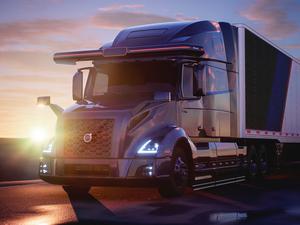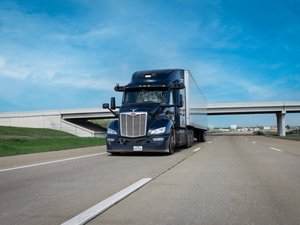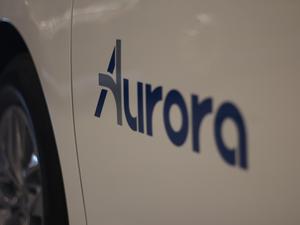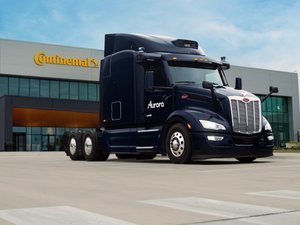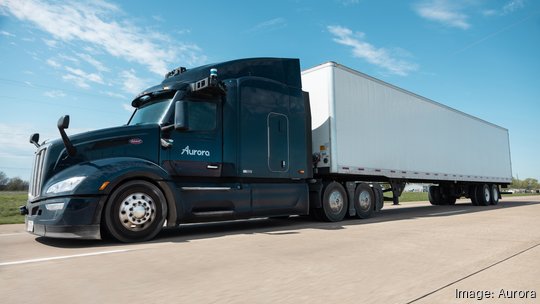
A new report published by Aurora found that autonomous trucking has the potential to improve energy efficiency between 13% and 32% per loaded mile.
Sustainability is a notable issue across the entire transportation industry, which the report states "is in the midst of an emissions crisis." According to the EPA, 29% of the United States' greenhouse gas emissions are caused by transportation and of that, 23% are from medium and heavy-duty trucks. In addition to the environmental issues, fuel cost is a major factor and is the second largest cost for the trucking industry.
"The freight and logistics industry is highly nuanced, with carriers of all sizes navigating a fragile supply chain and a complex environment of rising costs," report author Garrett Bray said. "In this research we found that autonomous trucks can significantly increase energy efficiency compared to traditional trucking, helping insulate businesses from risks like rising fuel costs and environmental regulatory mandates."
The report listed several factors, including optimizing speed and time spent on the road by minimizing idling and reducing time spent in heavy traffic by strategically timing transportation for late at night.
While the report primarily focused on diesel trucking, Bray emphasized that the factors enabling fuel efficiency for self-driving truck would also apply to electric vehicles.
"The energy efficiency benefits of autonomous trucking can also help accelerate the adoption of clean energy powertrains for tractor trailers," Bray wrote. "Technology that gets more bang for your buck out of your fuel, whether its diesel, a battery, or whatever else, means you essentially extend the range the vehicle can drive."
In addition to the positive effects, the report notes challenges. These include the energy drawn to power the suite of technologies that enable the vehicle to be self-driving as well as aerodynamic drag on sensors.
"The platforms we've integrated the Aurora Driver into, the Volvo VNL and Peterbilt 579, are leaders for low aerodynamic drag and we can take more incremental actions like folding in the side mirrors for increased efficiency," Jake Martin, head of strategic communications, wrote in response to a request for comment. "Taking a larger step, like cab designs that are less human-centric, is definitely a big opportunity for the technology, but it's one we won't see at a large scale until the autonomous trucking industry is more mature."
Aurora expects to have completely driverless vehicles on the road by the end of the year. Currently, the company operates vehicles in Texas with a backup operator at the wheel in case of an emergency.
In the United States, public opinion on self-driving vehicles skews negative. A poll conducted by AAA earlier this year found that 66% of Americans are "afraid" of self-driving vehicles while 9% "trust" self-driving vehicles. Aurora has been developing a safety case framework based on input from government organizations, academic research, industry veterans and internal discoveries. In March the company announced that the framework was 93% complete and showcased driverless trucks publicly for the first time.

